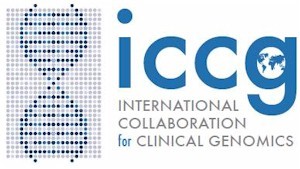 We had the pleasure of recently attending the International Collaboration for Clinical Genomics (ICCG) meeting in Bethesda. The ICCG is a partnership between the International Standards for Cytogenomic Arrays (ISCA) Consortium and members of the sequencing community who are focused on issues of standardization, data sharing, and collaboration as they relate to structural variation detected by chromosomal microarray (CMA) testing. Ultimately, the work they are doing will raise the standard of patient care by improving the quality of genomic testing.
We had the pleasure of recently attending the International Collaboration for Clinical Genomics (ICCG) meeting in Bethesda. The ICCG is a partnership between the International Standards for Cytogenomic Arrays (ISCA) Consortium and members of the sequencing community who are focused on issues of standardization, data sharing, and collaboration as they relate to structural variation detected by chromosomal microarray (CMA) testing. Ultimately, the work they are doing will raise the standard of patient care by improving the quality of genomic testing.
The conference was two days of excellent talks from researchers and clinicians representing leading academic institutions, government labs and hospitals. In addition to connecting with colleagues and customers, we were excited to get updates on ICCG-led projects and some of the latest advances around clinical variant interpretation and reporting.
The American College of Medical Genetics (ACMG) made recommendations for which genes to report incidental findings on, and how to classify variants (e.g., benign, likely benign, variant of unknown significance (VUS), likely pathogenic, pathogenic). In addition, these new recommendations suggest that patients be given the choice to opt out before testing takes place, so that results that they would wish not to receive are not generated. They say these will be constantly re-evaluated through polls and other ACMG research.
Another interesting session covered “matching.” Matching is a clever model of facilitating the sharing of variant data and collaborating without revealing too many details ahead of time. In this model, for example, someone could make their entries to the database discoverable by partially revealing some information to a master index, say, “I have variants in the FOXP2 gene.” Other users of the resource might submit a query “Does anyone have variants in the FOXP2 gene?” Through matching, these two parties would be connected without revealing all the details; “Yes, someone does, would you like us to notify them?” This allows sharing of information on a need-to-know basis without revealing the details. Follow-up is at the discretion of the submitters.
The bigger message here of course, are the challenges in front of us regarding the evaluation of supportive evidence required to deepen our confidence in variant data so it can be a more meaningful part of medical care. Data sharing and collaboration are two ways this will happen and they are topics that the DNAnexus platform can address. Though our work on the CHARGE project, in collaboration with Baylor College of Medicine’s HGSC and AWS, hundreds of researchers around the world are able to share tools and datsets securely to advance genomic discovers.

.png)
.png)
.png)